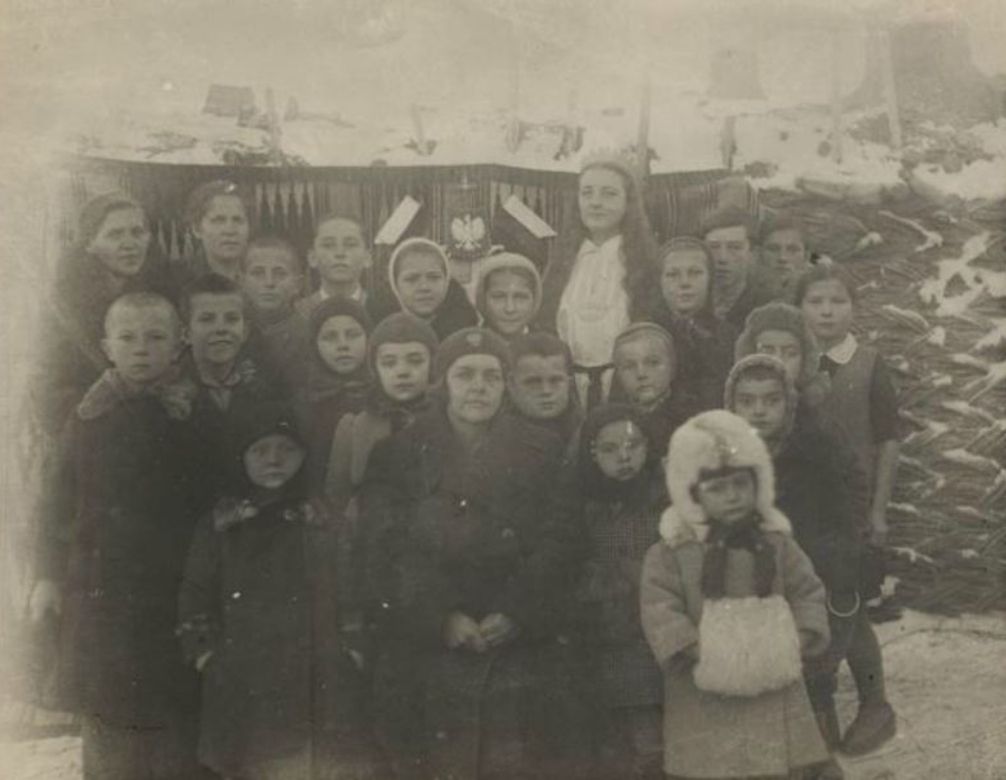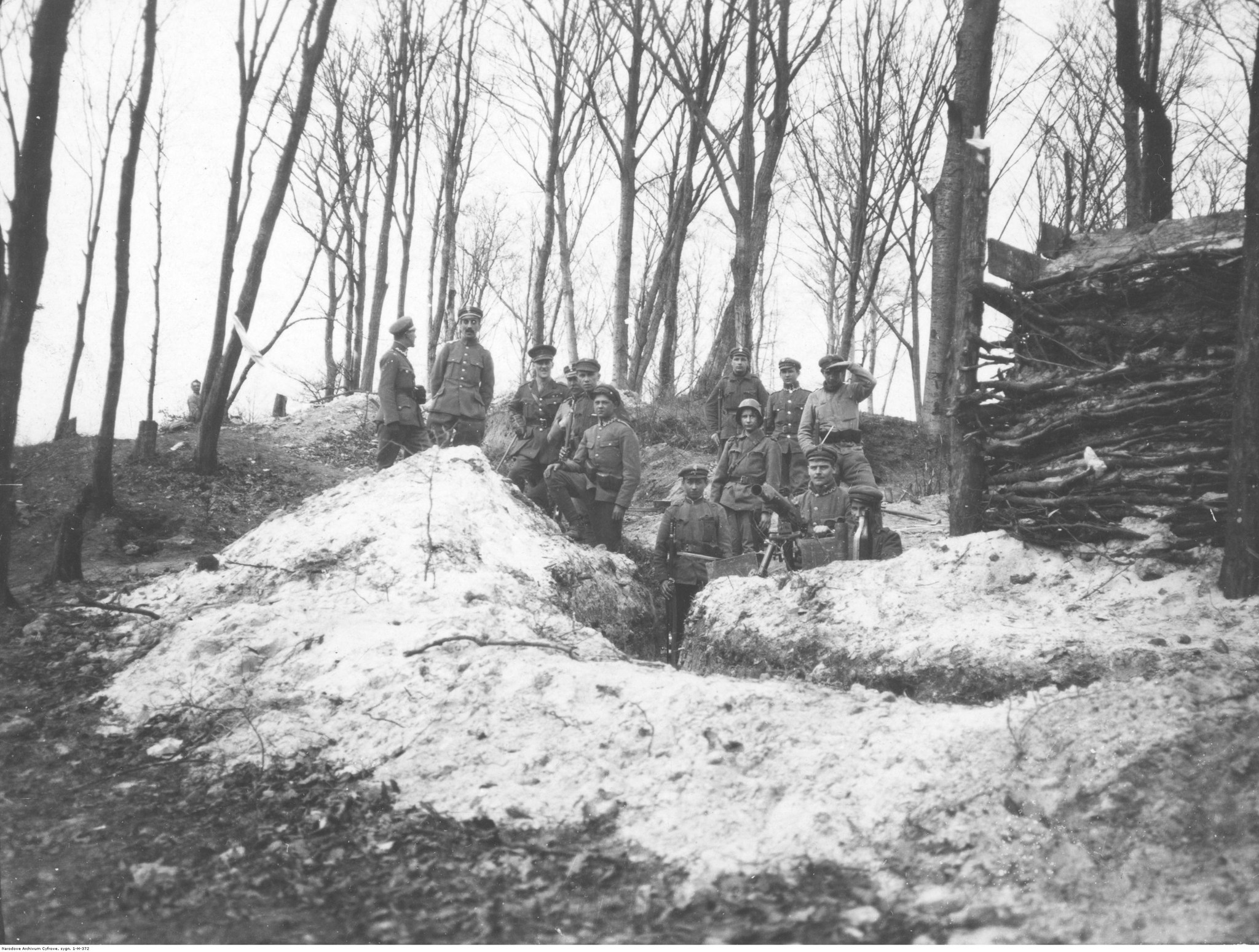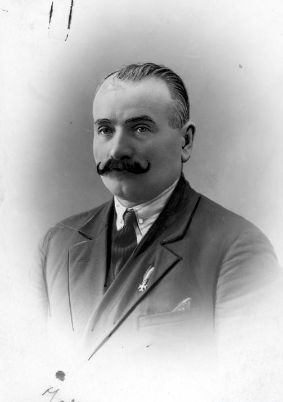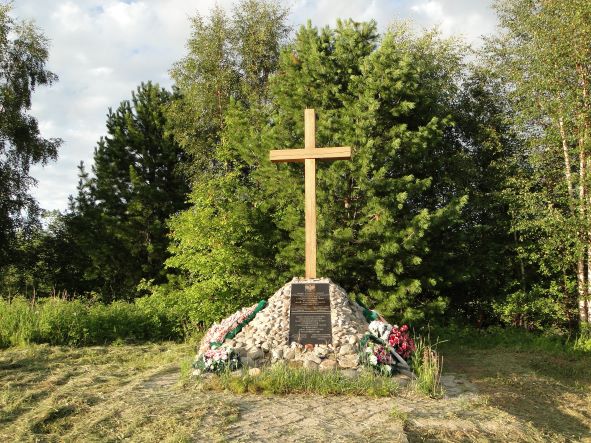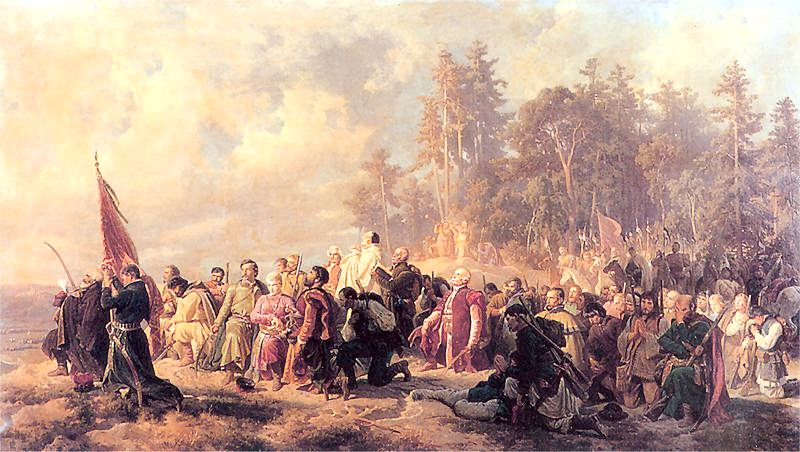The date of 11 November 1918, being the day on which Poland regained its independence, is a symbolic date. Exactly on that day, an armistice ending the First World War was concluded in a wagon in the forest of Compiègne.
The Polish-Bolshevik war broke out on 14 February 1919. The site of the first confrontation was the town of Mosty near Szczuczyn in the Grodno region, where Polish Army units halted the Red Army’s march.
On 31 October 1906 Marian Malinowski set off, as he himself put it, “on a journey into the unknown at government expense.”
On the night of 6 to 7 July (24/25 June old style) 1866, 5,000 kilometres east of their homeland, a group of January insurgents sent to Baikal for penal labour stirred up a rebellion, disarmed their guards and tried to forge an escape route to Mongolia.
Prayer of the Bar Confederates before the Battle of Lanckorona, oil painting by Artur Grottger.




